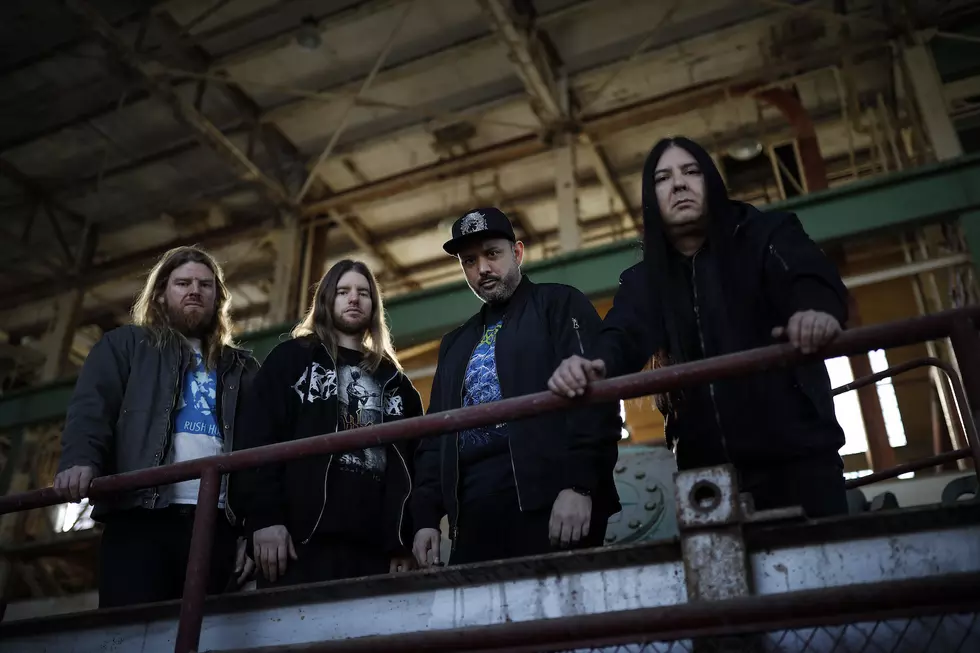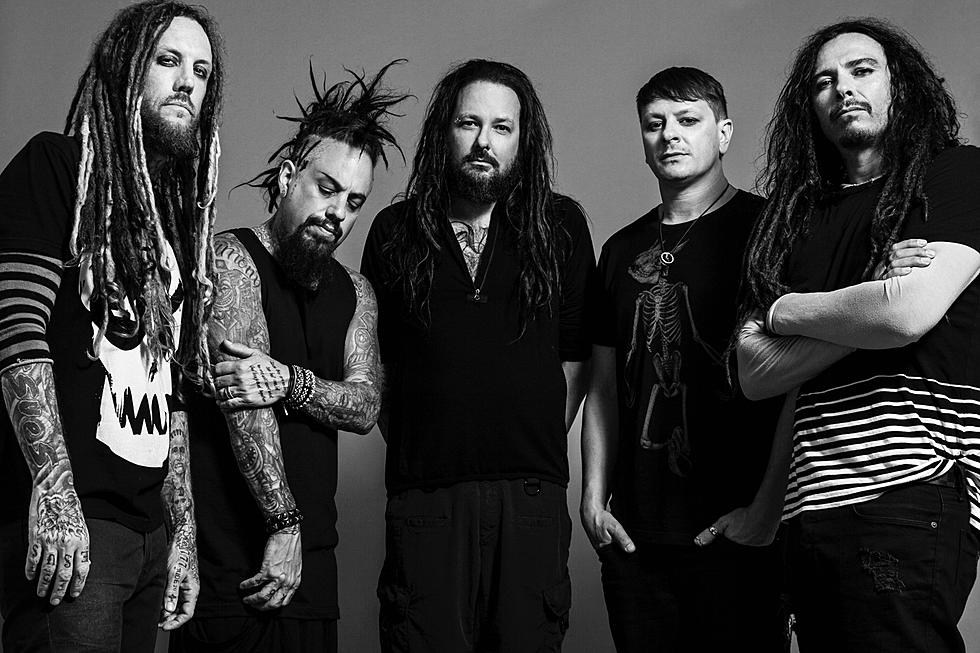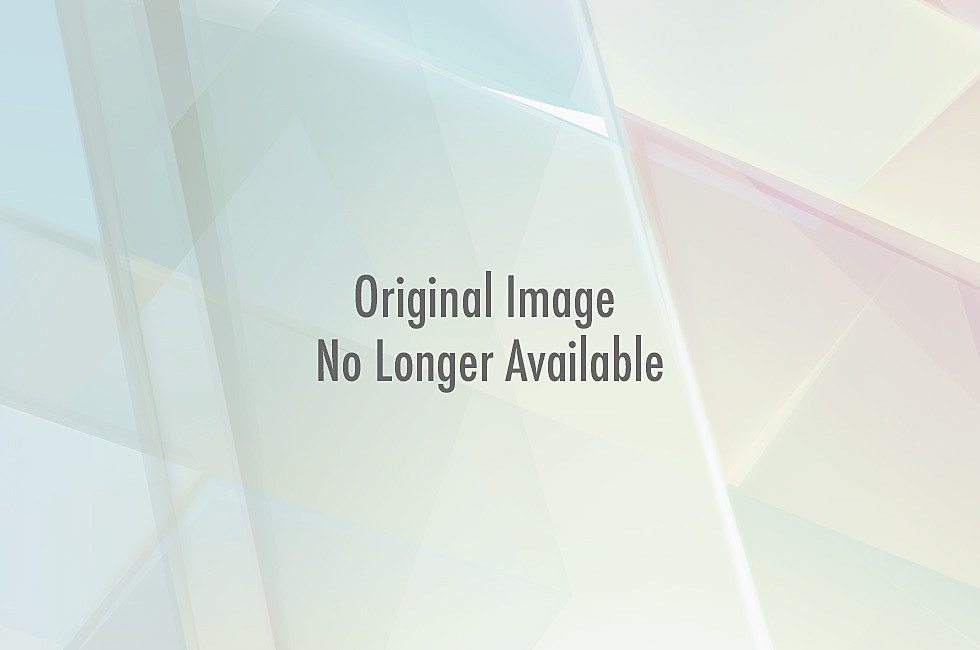
SGE’s John Reese: What it Takes to Be a Music Festival Promoter
Knotfest, Travis Barker's Musink Music Festival and Tattoo Convention, Disrupt Festival, Back to the Beach, The Bash, Camp Anarchy, Gnarlytown, Ohana Festival... the list goes on and responsible for all of these festivals is longtime promoter John Reese and his agency, SGE (Synergy Global Entertainment).
Before starting SGE in 2005, Reese's first owned a security company in Phoenix, Arizona with over 3,000 employees. He was able to parlay this into a job as tour manager for Guns N' Roses starting in 1989 after working to establish security detail within the band's ranks.
Reese has been in the game for a long time and is known mostly for boutique festivals, which are destination events, each with their own theme and feel in collaboration with today's major rock, punk and metal artists as well as those from outside genres. Still, he's had his hand in touring festivals, too, which have been converted into immersive events just like the standalone fests.
A go-to figure in festival promotion, Reese is in high demand and took time away from his hectic event schedule to talk to Loudwire about what it takes to be a festival promoter, analyzing successes and failures from across the business.
Let's kick this off by talking about two festivals that were disasters — Fyre Festival and Woodstock 50. The two seemed to embrace the Wayne's World II mentality of "if you book them, they will come." There's a lot more to booking a festival than simply getting the most popular acts, isn't there?
It's complicated. It used to be where you didn't have to worry about bombs and people shooting people and all of these things and it's really created an environment where you have to dot every I and cross every T.
With the Fyre Festival, they did a great marketing brochure that sold a lot of people, but nobody thought about poop and pee. Where are you gonna put the poop and the pee?
I don't know enough about Woodstock to say much, but you've got to have a site locked in before you go on sale. And ultimately, there are thousands of factors that come into play here with budgeting. Everything starts with a budget — not even a dream, but a budget.
Artists aren't really getting paid for music — the music pushes the live show now. So, what's happened is all these festivals have come up and everybody is a producer and everybody is a promoter. The market will bear a lot for an artist who sells a lot of tickets and there's a lot of festivals that have gone out of business because the talent doesn't sell the tickets. It's a big jigsaw puzzle.
With the festivals, of course, the music is a given. What you need to sell is an experience, so you're supporting these festivals with other forms of entertainment. Where do these additional ideas start — with you or the artists?
Surf City Blitz was launched last year in October. Mike Ness and Social Distortion are legends and probably one of the greatest bands in history and based in Southern California.
I had a beach location and the year before I did the Moto Beach Classic with Rolland Sands, who's one of the biggest names in motorcycles now.
So, I pitched them about doing this cool thing on the beach where the motorcycle culture and Social Distortion all come together and create this kind of immersive experience with the music, the fans, the lifestyle, attractions and the location.
The biggest difference with festivals in North America today is that they're destination events rather than touring festivals. What have you seen as far as fan interest that dictated this swing?
The biggest thing with like the destination events is that you can put more artists on them. You can really focus in on creating a world.
If you tour, the circus is coming to town for the day. You've got stuff coming in on trucks, you're landing at 8 a.m., you're building it, and you're out of there at midnight.
Many of these destination festivals, you build for six days and you build attractions and everything else.
Some of those things we're trying to do with Disrupt is a lot of cool stuff that people can look at, spots where people can take pictures... Everyone wants to post on Instagram these days. We're doing a bunch of characters from the tour poster, where people can take pictures with the characters or do a meet and greet.
Social media can dictate a festival's reputation, for better or for worse. You go back to Fyre Festival and a picture of a cheese sandwich sunk that whole thing for good.
What that means for me as an event producer is that every single time I have to work as hard as I can to do the best I can to deliver something that is critic-proof. Still, not every time you get a win and not every time you're gonna sell a lot of tickets.
It's harder than easier today. It's easier to reach people and to promote it, but it's hard to have the mystery. I worked with Guns N' Roses in the late '80s and early '90s ,and I remember going down Sunset when Use Your Illusion came out, and there were thousands of people in line at Tower Records to get that album.
From dealing with some volatile personalities within GN'R to where we are now where bands want to be clean and healthy. Do you find that they're more gracious and that there's less arrogance and also that there's just less room for that today?
There's a lot less room for that kind of shit today. The humanity of life has changed. You look at the #MeToo movement and you look at people's behavior — I think we've become a more civilized society in those senses.
I'm sober, and I think that sobriety is super important in so many levels with life. A sober mind is an interesting place. It allows you to really focus in on what's important in your life.
You started your career building a security company with 3,000 employees. How have security measures changed since the Las Vegas festival shooting? Are you doing anything now that you weren't doing or thinking about as a festival promoter before?
There's been massive changes. I mean, every major event we have we do emergency action plans. I mean, significant meetings, significant consultations with law enforcement — there's the analysis of everything from signage to ensure that entrances can't be crashed.
There's so many things that have gone in place, and it really started with 9/11, but it's grown. For me, and for SGE and for what we do, public safety is our first priority. There's nothing more important than public safety. It's the very first thing we think about and so — it's gotta be at the forefront of everything that we do.
A change we're seeing in the live entertainment market today is centered around new technology, be it VR and 360 degree live video streaming and hologram tours. Do you see these ventures as a threat or disruption to what you're doing?
I think that episodic programming combined with live content is the most important thing, meaning that you really get to know an artist.
The important part of streaming is, "Hey I get to hang out with Travis Barker at his house." There's an ability to go behind the curtain versus just watching the show and I think the combination of the two is the future.
We're looking at various options through a company called Live by Live and also with Samsung of ways to do interactive cool things. Just watching a show is one thing, but if you have the chance to really understand everything about it, that's what's going to be compelling content.
There's a lot of events that I have that I look to expand into other territories and other markets and even other countries in the future. So for me and the streaming stuff — it's a big world.
I don't look at it as a negative, because at the end of the day there is nothing on this planet more emotionally compelling than listening to live music. Not movies, not sex, not anything — the ability to go experience live music with a like-minded group of people to me is the greatest emotional response available to human beings. Maybe having sex while doing it is great, too [laughs].
When starting out as a promoter, going straight to festival production doesn't seem like the most likely path. What are some character traits that a promoter must possess, and what's the best way for them to get started?
Big dreams with a good plan. You've got to have a good plan, just like anything in life. Everything is about planning ahead. Find what you're passionate about and start there.
We're in a bunch of genres of music now. I started in hard rock and metal but I'm in reggae, EDM and hip-hop. I'm just a music fan. I didn't want to be just the metal guy — not that I wasn't happy being the metal guy, but for me, I'm a huge fan of all styles of music.
I've found a lot of great curation partners that respect and I think are the best artists out there. Whether I win, lose or draw, I get to work in music every day and if it all ends tomorrow, I've achieved my dream being able to do this and see peoples' faces light up when there are songs played that really touch them and move them, whether it's Slayer, Jason Aldean or Slightly Stoopid, Blink-182, you name it. Peoples' faces light up because of the music. For me, whether I'm making money or whatever, that's what gets me off.
66 Most Important Moments in Metal History
More From Noisecreep










